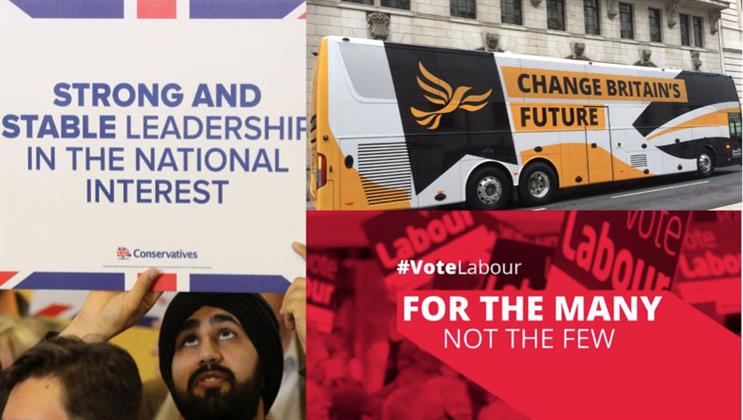To succeed in politics today, you need a strong brand. From Trump and Farage to May and Macron, today’s leading politicians are rising to the top through strength of their personal image. Boris Johnson, whose personality made him one of this century’s most popular politicians, is no longer an outlier.
Voters are tired of elections and disillusioned with politics. In this challenging environment, political campaigning is drawing on tactics that brands have used for years to connect with the public.
With the general election just a week away, here are four things that any election campaign needs in order to achieve cut-through:
Have your strapline…and stick to it
Theresa May has been lampooned by the media for her "strong and stable" mantra, but this message has achieved more cut-through during the election campaign than any other. We all know a strong strapline is fundamental for any brand looking to stand out in a crowded marketplace. Stay tuned to see whether this one makes the branding Hall of Fame.
Powerful and consistent messaging is more likely to trickle down to voters in their everyday lives and give meaning to a brand or party.
Boost your campaign by "word of mouth"
Any successful brand knows that what you say about yourself is one thing – but it’s what other people say about you that makes the bigger impact. That’s why cultivating word-of-mouth endorsements remains a key tactic for brands and parties to establish an authentic image.
shows that millennials rely more on word-of-mouth than other generations when researching products or services - perhaps that’s why Jeremy Corbyn has held a series of election rallies and has gained such widespread support on social media.
Content may be king, but distribution is just as important
Great content is always going to be important – but it needs to reach the right audience. Brands have long understood how online advertising can allow them to micro-target and personalise messages across different digital platforms, but this has now filtered into the political mainstream.
In the 2015 general election, the Conservatives outspent Labour by investing at least £1.2 million in Facebook ads, and reaped the rewards. This year, in what has been labeled the "dark ads" election, the Conservatives have again invested heavily in their online advertising, with tailored Facebook and Instagram adverts targeting undecided or swing voters.
Brands needs personalities too
The movement was one of the more unexpected elements of this year’s election campaign – but it clearly showed how powerful influencer marketing and brand ambassadors can be in a political setting, mobilising grime fans to engage with Labour’s policies and the election as a whole.
There’s a reason that brands are so prominent in modern life – they help us form powerful connections with the products we buy, the places we go and even the parties we vote for. By adopting consumer tactics, politicians have found a powerful new way to engage skeptical voters, and personal branding could go a long way to deciding the result on 8 June.
Debbie Klein is chief executive at Engine


